In this edition
- Healthy Living Sustainable Recovery Team Partnership
- The Healthy Living Sustainable Recovery Coordinators
- Upcoming Offers of 40- hour Hope Advocate Training
- 40-hour Quarter 3 Graduate Classes
- Nevada Coalition to End Domestic and Sexual Violence Annual Conference
- How Not to Date a Jerk and Healthy Steps to Freedom Classes
- First 40-Hour Hope Advocate Training at UnitedHealthcare Health Plan of Nevada
- LIMA Community Resource Sharing Meeting
- 40-hour Hope Advocate Training Anniversary & Updates
- Domestic Violence Awareness & National Substance Abuse Month
- Blogs in Observance of Domestic Violence Awareness Month
About the Newsletter
Welcome to the University of Nevada, Reno Extension’s Hope for Family Resilience Newsletter series! This series serves as a vital resource for individuals and families seeking support, education, and resources to build resilience and foster healthy relationships. Led by our dedicated team of experts, we aim to provide evidence-based strategies, insights, and information to empower individuals and communities to navigate challenges such as domestic violence, family dynamics, and interpersonal relationships. Whether you're looking to enhance your understanding of these issues, access valuable resources, or participate in training programs, our newsletters are here to guide you on your journey towards greater resilience and well-being. Stay connected with us as we continue to share valuable content and opportunities for growth and support.
Introduction to the Healthy Living
Sustainable Recovery Team Partnership
Extension’s Hope Team joins forces with Extension’s Healthy Living Sustainable Recovery Team
University of Nevada, Reno Extension’s Hope Team has recently joined forces with Extension’s Healthy Living Sustainable Recovery Team, with Elizabeth "Liz" Ornelas leading the community-based focus of both teams. This partnership aims to combine Extension resources and expertise to better serve our community and expand our impact.
The substance use epidemic is a complex social and public health problem that no single entity can solve alone. Integration and collaboration are critical to address risk and recovery capital for individuals and families affected by substance use.
VIEW THE FACT SHEETS
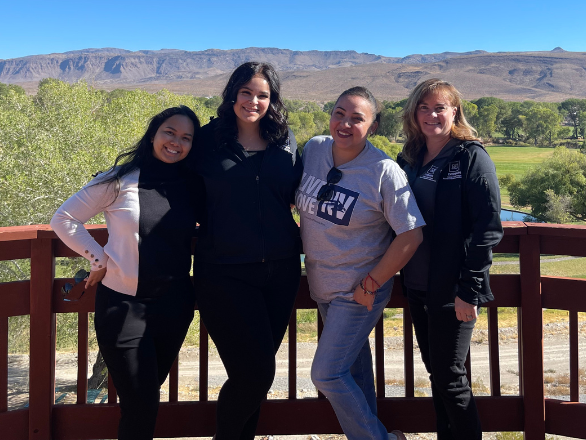
The Hope and Healthy Living Sustainable Recovery teams at Extension's Camp Alamo
The rate of justice-involved females and women in recovery, mostly mothers of young children, is rapidly outpacing men. Yet, many treatment programs remain “gender-neutral,” meaning designed with men in mind, and seldom address why women use drugs/alcohol, how they manifest differently in their bodies, and how to reduce female recidivism (Office on Women’s Health). For example, while a high intake of fruits and vegetables in women have been shown to be effective in the treatment of depression and anxiety there are unique challenges that women face in recovery related to weight concerns, dieting, eating pathology and body dissatisfaction.
Programs, especially those involving women, should recognize and prioritize these health-related and psychosocial concerns to improve overall health and well-being while reducing the risk of reoccurrence. Healthy Steps to Freedom is a 10-week, gender-responsive program developed in 2007 to promote nutrition, physical activity, and body acceptance. The program provides participants with essential tools for healthier lifestyles and has extended its reach by offering continuing education to substance abuse and mental health professionals through a train-the-trainer model—free of charge. Addressing these concerns across various programming includes multiple disciplines such as nutrition, financial planning, workforce development, older adults, substance use, domestic violence, parenting and youth programming.
Those interested in becoming trained on the Healthy Steps to Freedom program can contact HealthyRecovery@unr.edu.
BECOME A TRAINER
Meet The Healthy Living Sustainable Recovery Coordinators
Janelle Ferraris and Micah Stoor join the Healthy Living Sustainable Recovery team
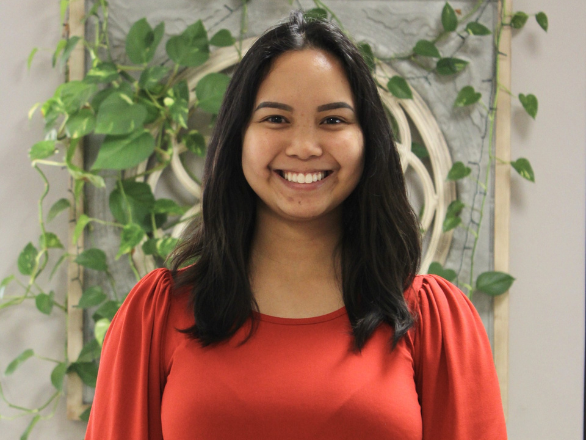 Janelle Ferraris
Janelle Ferraris
Janelle Ferraris (she/her) is the Community-Based Recovery Programs coordinator. She facilitates evidence-based programming for women in community-based recovery settings, including substance use disorder treatment centers and mental health facilities. Janelle collaborates with local organizations to identify needs and provide resources that engage clients in sustainable recovery practices.
READ MORE ABOUT JANELLE
Micah Stoor (she/her) serves as the coordinator for Corrections-Based Recovery Programs on the Healthy Living Sustainable Recovery team at Extension. She partners with correctional facilities, such as Florence McClure Women’s Correctional Center, Jean Conservation Camp, Clark County Detention Center, and MAT Re-entry Court, to plan, implement and facilitate evidence-based recovery programming for women.
READ MORE ABOUT MICAH
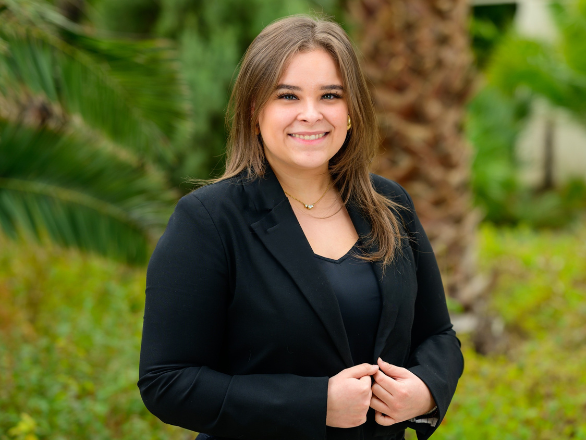
Micah Stoor
Upcoming Offers of 40-hour Hope Advocate Training
The last training of the year is filling up fast. Be sure to reserve your seat now.
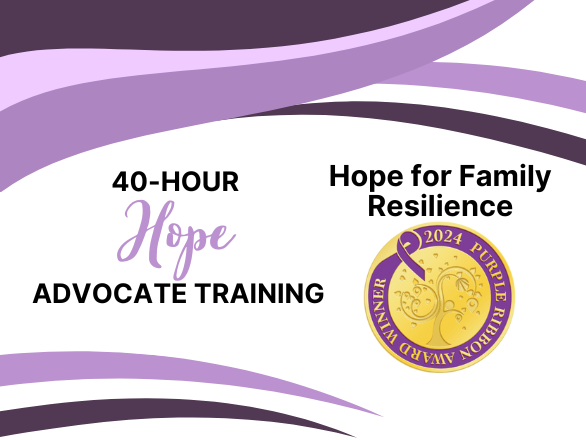
Last 2024 Training:
Location: University of Nevada, Reno Clark County Extension, 2280 North McDaniel Street, North Las Vegas, NV 89030
Dates: December 3 to 6, 8 a.m. to 6 p.m.
Space is limited and we only have a few seats left. If you are interested, register as soon as possible before the class fills up.
Register for December training
2025 Training Dates:
Location: Online Zoom
January 7, 14, 21, 28 and Feb. 4, 11, 18, and 25 (virtual half days), 8 a.m. to 1 p.m.
Location: University of Nevada, Reno Clark County Extension
2280 North McDaniel Street, North Las Vegas, NV 89030
April 7 to 10, 8 a.m. to 6 p.m.
Location: University of Nevada, Reno Redfield Campus
18600 Wedge Parkway, Room 230, Reno, NV 89511
May 15 to 18, 8 a.m. to 6 p.m.
Location: University of Nevada, Reno Clark County Extension
2280 North McDaniel Street, North Las Vegas, NV 89030
July 9, 16, 23, and 30, 8 a.m. to 6 p.m.
Location: University of Nevada, Reno Clark County Extension
2280 North McDaniel Street, North Las Vegas, NV 89030
Oct. 6 to 9, 8 a.m. to 6 p.m.
Register for 2025 Dates
Congratulations to the Most Recent Graduating Classes
We want to send heartfelt congratulations to the most recent 40-hour Hope Advocate Training graduates.
July North Las Vegas Cohort
We welcomed our very first Courtroom Critter pup to the advocate certification. This cohort had great discussions with a wide range of experience from retired lawyers to community health workers and many more in between.
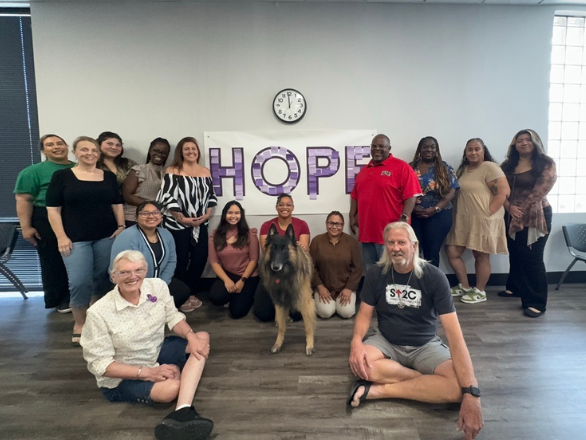
July Health Plan of Nevada Cohort
We were so excited to start our first in-house cohort on the Health Plan of Nevada Tenaya campus. The energy and passion from this group was evident as they shared exactly how they wanted to change their impact moving forward.
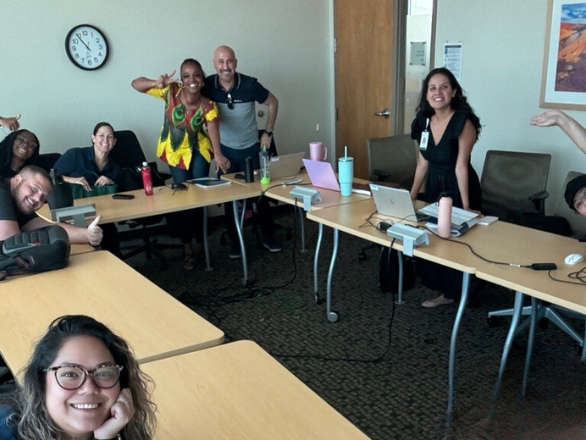
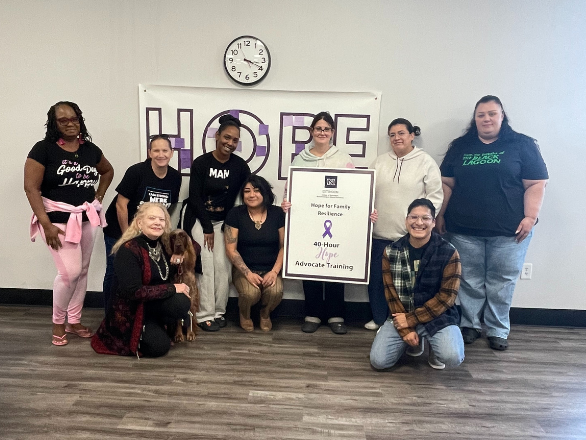
September North Las Vegas Cohort
We welcomed our second Courtroom Critter pup and a passionate volunteer committed to advocacy to give back. In this cohort, the conversations were deep and we were excited for Janelle to teach her first module and share her expertise.
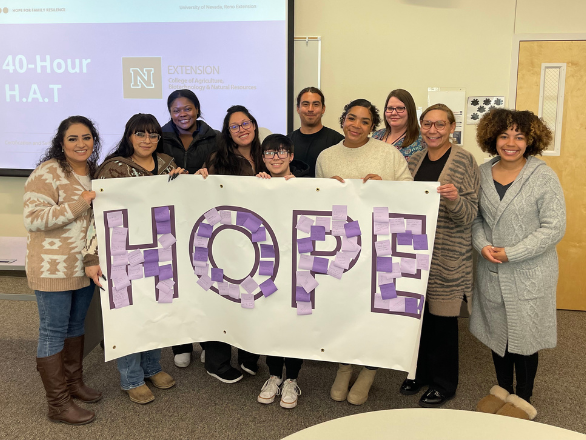
October Reno Cohort
We welcomed current University of Nevada, Reno students and several agency advocates, including: Pyramid Lake Paiute Tribe, Reno-Sparks Indian Colony, Health Plan of Nevada and Attorney General Ford’s Domestic Violence Staff. We enjoyed in depth conversation about the specialty issues in our rural communities and tribal nations.
Training the Helpers on a Foundation of HOPE
Nevada Coalition to End Domestic and Sexual Violence Annual Conference Presentation
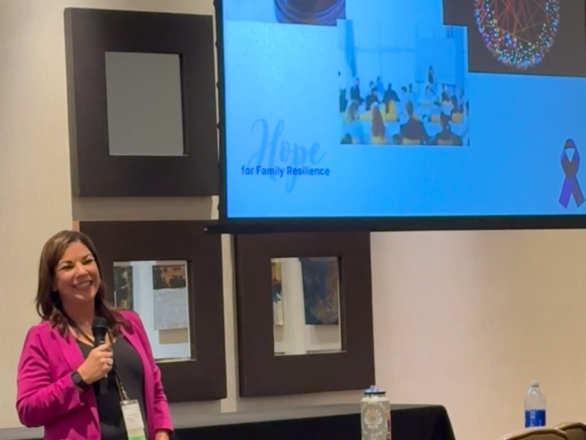 Payne presenting at the Nevada Coalition to End Domestic and Sexual Violence Annual Conference
Payne presenting at the Nevada Coalition to End Domestic and Sexual Violence Annual Conference
Pamela B. Payne, Ph.D., CFLE, presented at the three-day Nevada Coalition to End Domestic and Sexual Violence Annual Conference held September 24-26, at Sunset Station in Las Vegas. Payne presented on the topic, Training the Helpers on a Foundation of HOPE: Using Family Science as a Foundation for Advocate Education. This presentation, tailored for advocates and professionals in the field of domestic and sexual violence, explored how Family Science and Certified Family Life Education can enhance advocate education and training.
LEARN MORE ABOUT THE COALITION
Payne’s presentation integrated the histories of Family Science, the Certified Family Life Education Content Areas, and Cooperative Extension’s history to develop research-based educational training aligned with trauma-informed best practices for families. This foundation supports the 40-Hour Hope Advocate Training, which addresses the complexities of working with survivors of intimate partner violence.
Attendees were introduced to Family Life Education and culturally responsive training techniques to inform advocate education. Key learning outcomes included understanding the impact of domestic violence on familial cycles and generational patterns, identifying the role of advocates in fostering active survivorship, and applying trauma-informed, family life education-focused strategies to support both advocates and survivors.
This training represents the collaborative efforts of the University of Nevada, Reno, and a community advisory board consisting of over 10 community groups and stakeholders, resulting in a program that is trauma-informed, evidence-based and culturally inclusive.
How Not to Date a Jerk and Healthy Steps to Freedom Classes
We are proud to continue offering impactful education at the Clark County Detention Center
We are proud to continue offering impactful education through two of our key programs: How Not to Date a Jerk (or Jerkette) and Healthy Steps to Freedom.
These programs are currently offered to the female inmate population at the Clark County Detention Center.
REQUEST THESE PROGRAMS
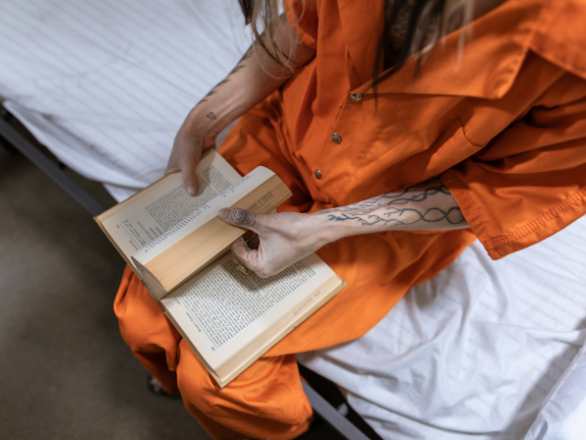
How Not to Date a Jerk (or Jerkette) is a free course designed to help participants break the cycle of unhealthy relationships. Many individuals find themselves repeatedly attracted to the same detrimental qualities in partners, leading to frustration and disillusionment. This course provides the tools to recognize the signs of a potential jerk, understand the role of self-esteem in dating, establish healthy boundaries and communicate effectively in relationships. Whether seeking new relationships or improving existing ones, this course is a valuable resource for those ready to make positive changes.
The Healthy Steps to Freedom program, developed in 2007, is a 10-week, gender-responsive initiative that promotes nutrition, physical activity, and body acceptance. It equips participants with essential tools for healthier living and extends its impact through continuing education for substance abuse and mental health professionals.
Both programs aim to provide health education and skill development for incarcerated women, supporting their reentry into civilian life or enhancing their skills if they remain incarcerated. Currently offered quarterly, these sessions are part of the University of Nevada, Reno Extension’s community and corrections programming and are provided at no cost.
These programs reflect our commitment to fostering education, self-awareness, and healthier choices among women in correctional facilities, preparing them for a better future inside and outside of these settings.
LIMA Community Resource Sharing Meeting
Come together to learn about the community resources available in Las Vegas
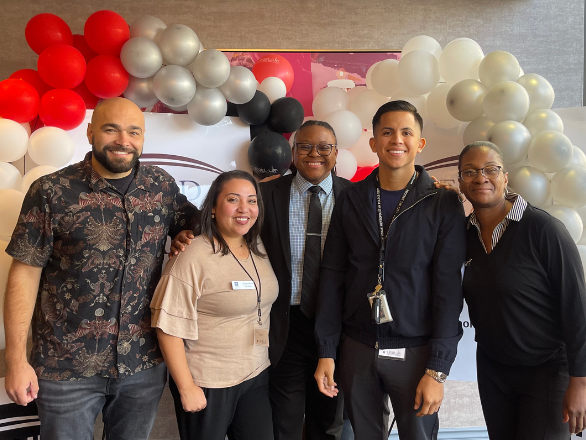
In August, over 160 participants from the Clark County community and various organizations came together to network, share resources, and strengthen their efforts in supporting those in need.
The event was a tremendous success, offering participants the chance to connect, collaborate, and exchange valuable information.
LEARN MORE ABOUT LIMA
Attendees received the contact information of all participants, fostering continued communication, resource sharing, and opportunities to collaborate on future events and projects.
We are excited to invite you to the next community resource sharing meeting, scheduled for February 7, 2025, from 11 a.m. to 4 p.m. Join us for lunch and networking from 11 a.m. to 12 p.m., followed by an afternoon of resource sharing and collaboration opportunities.
Register for our winter meeting to connect with fellow community members and organizations dedicated to making a positive impact.
REGISTER FOR THE NEXT MEETING
40-Hour Hope Advocate Training Anniversary and Updates
Celebrate a year of training advocates across Nevada.
We are proud to celebrate one year since developing the 40-Hour Hope Advocate Training and meeting with our board to review the program before launching our first round of training sessions. Over the past year, we have successfully conducted seven rounds of training, certifying 80 advocates who are now equipped to make a meaningful impact in their communities.
The feedback from participants has been overwhelmingly positive. Even seasoned advocates, some with years of experience in the field, have expressed how much they learned from the training, highlighting the quality and depth of the content.

We offered our first on-site session tailored for one of the 40-hour advisory board members, Rosensteel (she/her), Associate Director of Health Equity and Social Drivers at UnitedHealthcare Health Plan of Nevada Medicaid. Rachel wanted to bring the 40-Hour Hope Advocate Training to UnitedHealthcare’s community health workers to equip them with best practices in supporting individuals affected by domestic violence. Despite initial hesitations and some resistance, the overwhelming feedback from participants was highly positive. Attendees praised the quality and delivery of the training and expressed gratitude for the opportunity to participate. This collaboration marked the beginning of an ongoing partnership, with plans to continue training more UnitedHealthcare staff next year.
Looking ahead, we are excited to announce our plans to create a fully virtual option for the 40-Hour Hope Advocate Training program, allowing us to expand our reach beyond Nevada and offer the training across the nation. We are also developing a train-the-trainer model to further extend our impact, enabling us to educate more advocates both within Nevada and beyond.
If you are interested in learning more about these updates, exploring opportunities to get involved, or bringing this impactful training to your teams, contact us at HopeTeam@unr.edu.
Domestic Violence Awareness Month and
National Substance Abuse Prevention Month
October is a powerful month centered around more than Halloween.
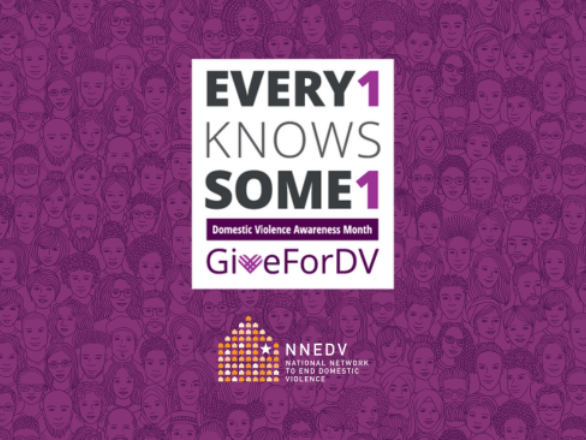
October is the time we recognize the need for prevention – both of domestic violence and substance use. During the month, those recognizing Domestic Violence Awareness come together to honor the lives lost to, bring awareness to the prevalence of, and celebrate the progress made in the field of domestic violence.
Learn more about panels
Spending a whole month dedicated to the prevention of domestic violence and substance use is key in keeping the impact these harmful acts have on individuals and society, as a whole, relevant and top of mind. And there are not just a few of these harmful acts — the numbers are unfortunately quite high.
The need for awareness and recognition for domestic violence comes from its prevalence both globally and locally. While many people may believe domestic violence isn’t likely to touch them, the truth is, with staggering statistics from Breiding et al. in 2014, such as an average of 24 people per minute being victimized by an intimate partner and one in four women and one in seven men over 18 experiencing physical violence by an intimate partner in their lifetime, chances are someone you know has been (or will be) a victim of domestic abuse.
Simultaneously, those honoring National Substance Abuse Prevention month are coming together as advocates for prevention while recognizing those in recovery including their loved ones and support system. They, too, are also far from being alone in this fight. Substance use disorder affects 48.5 million Americans starting at the age of 12. There are 10.2% of Americans 12 and older who had an alcohol use disorder within the last year and 9.7% reported battling drug use disorder. In that same year, 7.5 million Americans (2.7%) struggled with both at the same time according to a 2023 statistic from the Substance Abuse and Mental Health Services Administration.
Knowing the high number of people this affects; it is imperative that more people are aware and are involved with helping bring awareness to and prevent these crises. That is why we need more people to be the voices of awareness to these causes. The best part is you can participate in a way that is best suited to you. Some examples include volunteering or donating time, money, or resources to your local domestic violence or substance use programs. Or if you’re looking for more behind the scenes ways to get involved, educate yourself and share what you learn with others. Liking, sharing, and sending posts on social media go a long way in spreading the word and sharing available resources.
If you want to learn more about resources or want to develop the skills for being an advocate, be sure to register for the 40-hour Hope Advocate Training
REGISTER FOR THE 40-HOUR TRAINING
Blogs in Observance of Domestic Violence Awareness Month
Pamela B. Payne, PhD, CFLE's shared her wisdom in observance of Domestic Violence Awareness Month
In observance of Domestic Violence Awareness Month, Pamela B. Payne, Ph.D., CFLE shared key insights on how to end the cycle of domestic abuse in her Ask the Professor blog post for Nevada Today.
READ ABOUT ENDING THE CYCLE OF ABUSE
Payne also wrote a blog post for NSight discussing the importance of words and actions in healthy relationships – and how healthy loving adults can model the use of loving words and actions to do their part to end the cycle of violence.
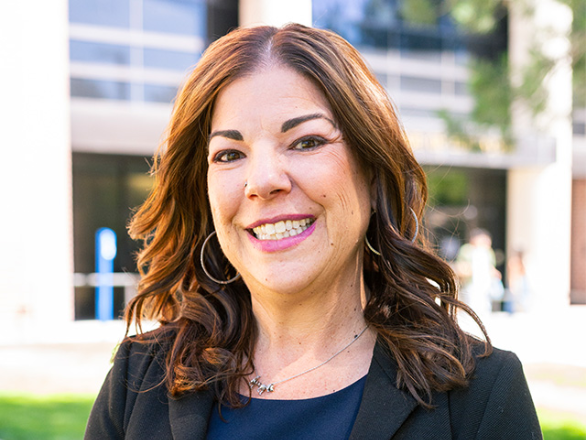
Pamela B. Payne, PhD, CFLE


